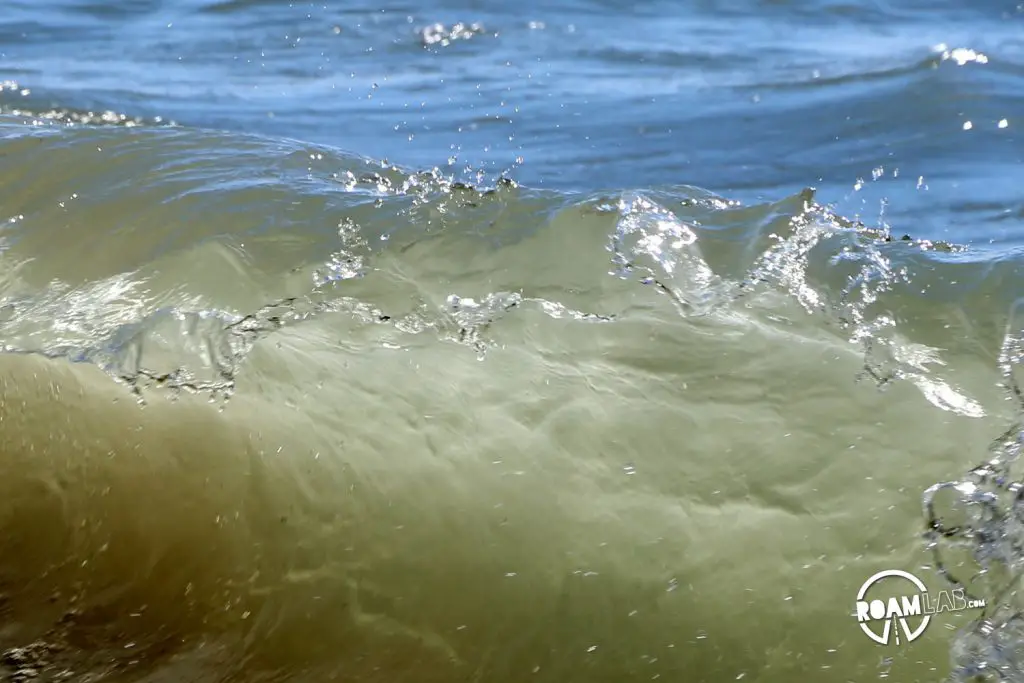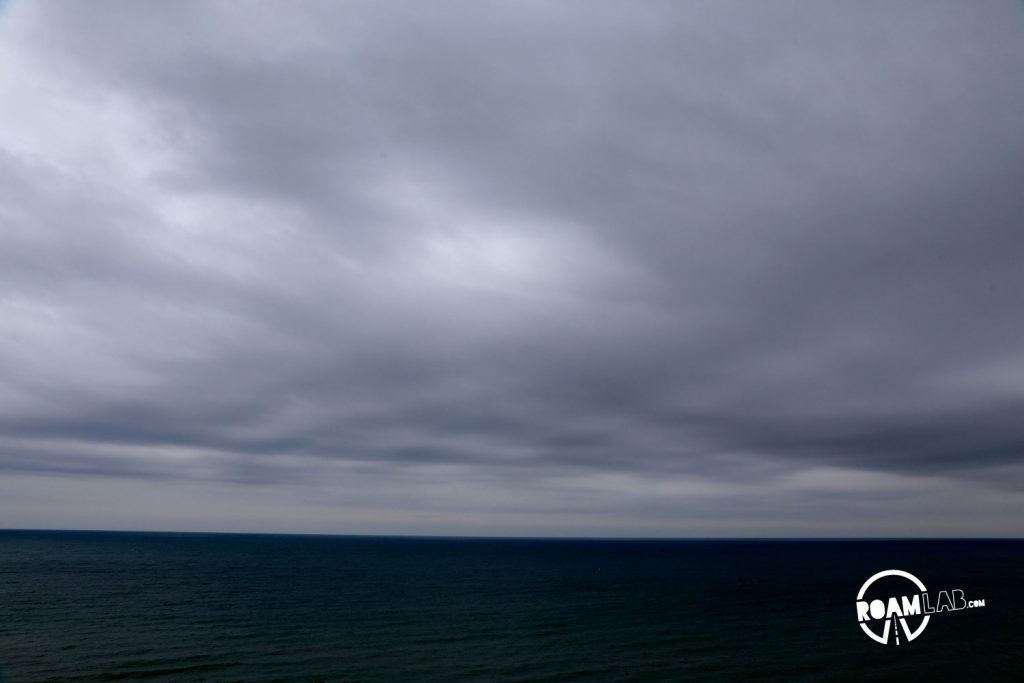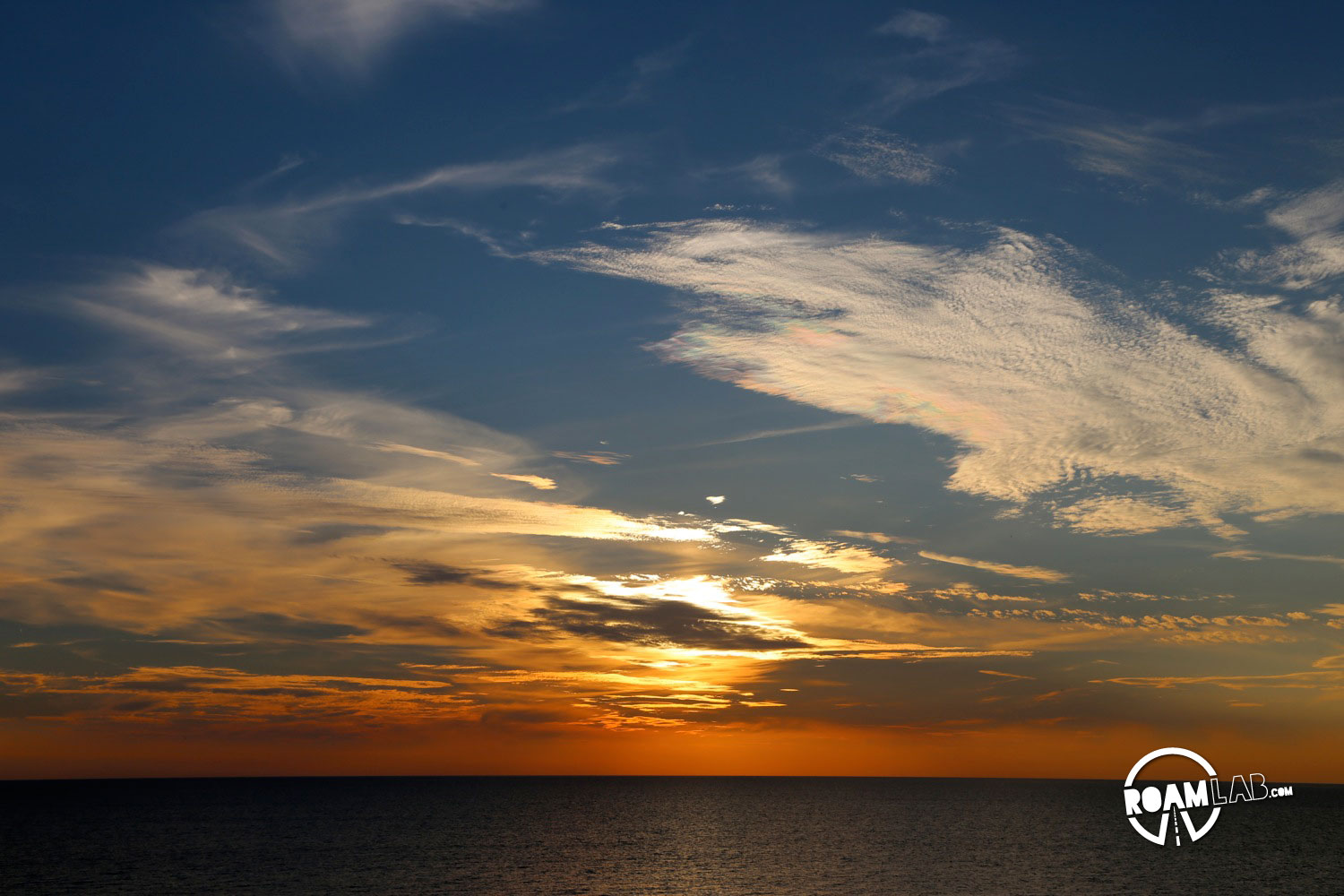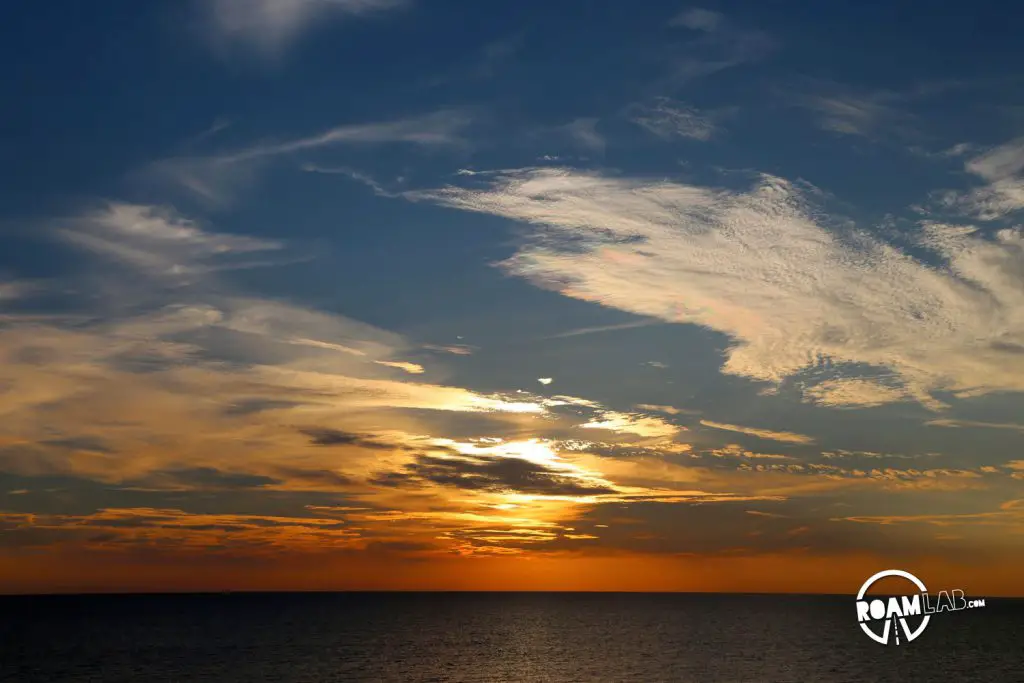Lake Michigan covers 22,404 square miles of the earth’s surface—slightly smaller than West Virginia—with 1,640 miles of shore line. That makes it the fifth largest lake lake in the world. With 1,180 cubic miles of water, It is also the second largest of the Great Lakes of North America by volume.

If one was to be pedantic—and how could I ever pass up the opportunity—Lake Michigan and Lake Huron form one, complete lake. You see, the Straits of Mackinac, which divides Michigan into its upper and lower peninsulas, connects Lake Michigan and Lake Huron with no change in surface elevation. So, if we were to combine the two so called “lakes,” that would make Lake Michigan-Huron we would have a lake with almost twice the shore length, fifty percent more surface area but still, be smaller by volume. Yeah, Lake Superior is pretty huge.
| Michigan Lake | Huron Lake | Michigan-Huron (total) | Superior | |
|---|---|---|---|---|
| Shore length (miles) | 1,400 | 1,850 | 3,250 | 1,729 |
| Surface area (square miles) | 22,404 | 23,007 | 45,411 | 31,700 |
| Water volume (cubic miles) | 1,180 | 850 | 2,030 | 2,900 |

All of this is to say that we are now traveling along the shoreline of the only Great Lake to not share a border with Canada. We were planning to meet some friends down south and were offering to pick up some local Michigan brews when they tipped us off to some friendly faces who could see Chicago from their porch on a clear day. It proved great opportunity to relax and contemplate our travels before we take a little break to go heads down into some work for a while. So we sat with friends near the shore and watched the sun set and the clouds erupt in color.







